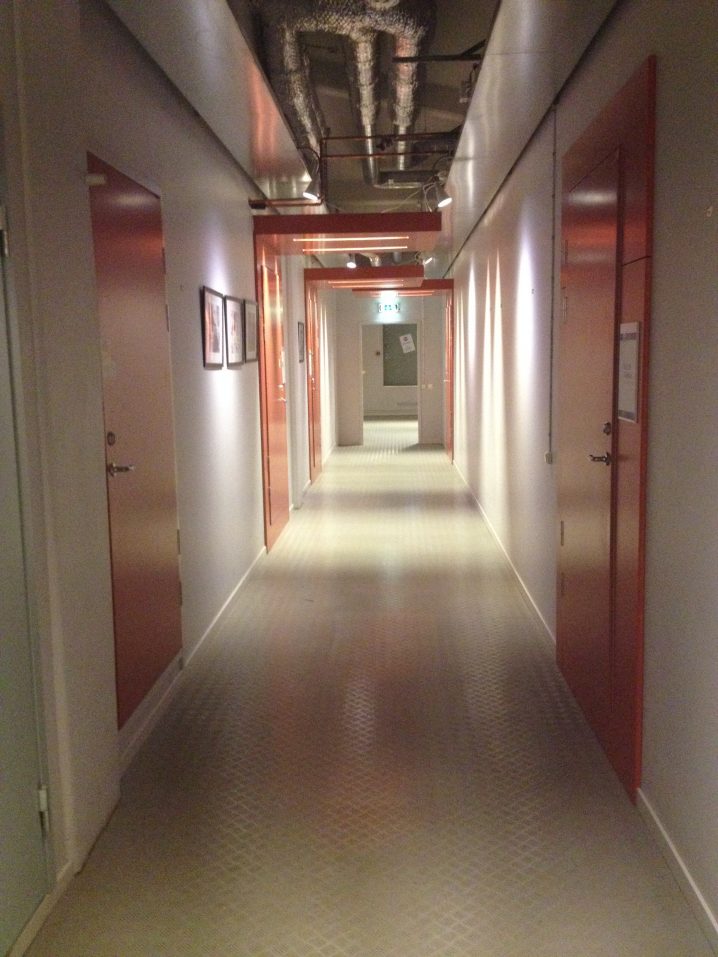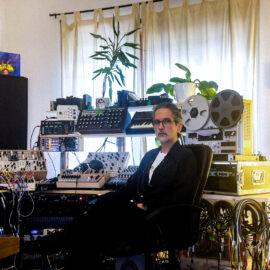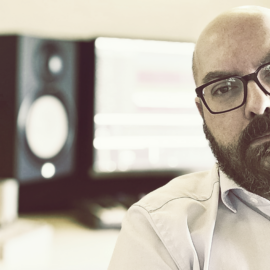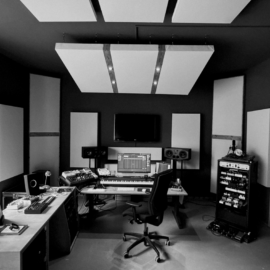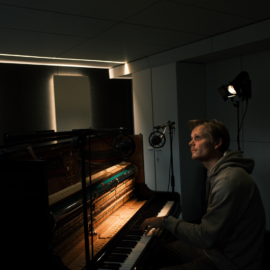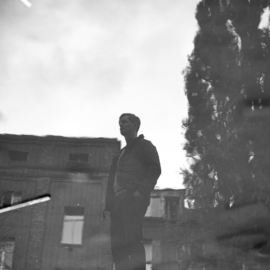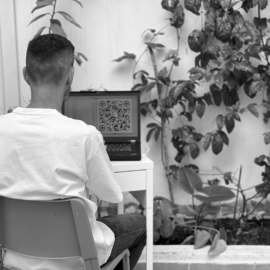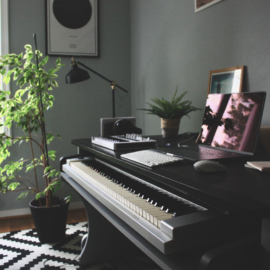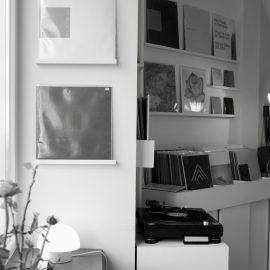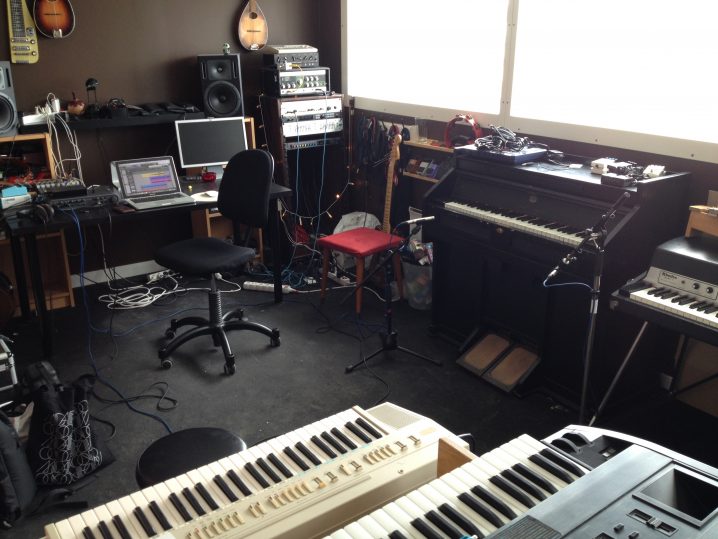
Lets start at the very beginning. Can you tell us how you got involved in composing, and what was your very first piece of gear?
When I was young, like 15-16 or something, I started playing bass in a grunge band and after a while one of the guitar players and I started working together on the songs, and that was my first real step towards making my own music. I didn’t actually write anything at this point, but I kept feeding in ideas and figuring out structures and stuff like that. And then that band broke up, but a while after the guitarist and I formed a new band with some of the people from the same grunge band and at this point I had started writing stuff for real. I remember being heavily influenced by the Swedish band Fireside at the time. So when I moved from Värnamo, where I grew up, to Gothenburg, I didn’t really have anyone to play with, but I still wanted to create music and so I figured I’d have to do it myself to make it work. At this point I had discovered Sigur Rós, Mogwai and Godspeed You Black Emperor and the likes and wanted to do something in the veins of that. So I started writing songs heavily influenced by the post rock thing. It was really basic to begin with. I had bought an Epiphone SG which I basically just lined into a 4-track portable tape recorder. And I remember I used to create drum beats in a game for Playstation called Music (yes, really… ) which I then transferred to minidisc and then onto the tape recorder that I had borrowed from a friend. At this point I knew nothing about recording or mixing, but I borrowed books on recording and mixing techniques at the library and started reading up. The first actual recording piece of gear I got was a cheap condenser microphone from a manufacturer called JJLabs. At this point I had no idea how things worked, and no one had told me that a condenser microphone needed phantom power… So I thought the thing was broken, went back to the store only to have the staff basically laughing their asses off at me. It was humbling experience.
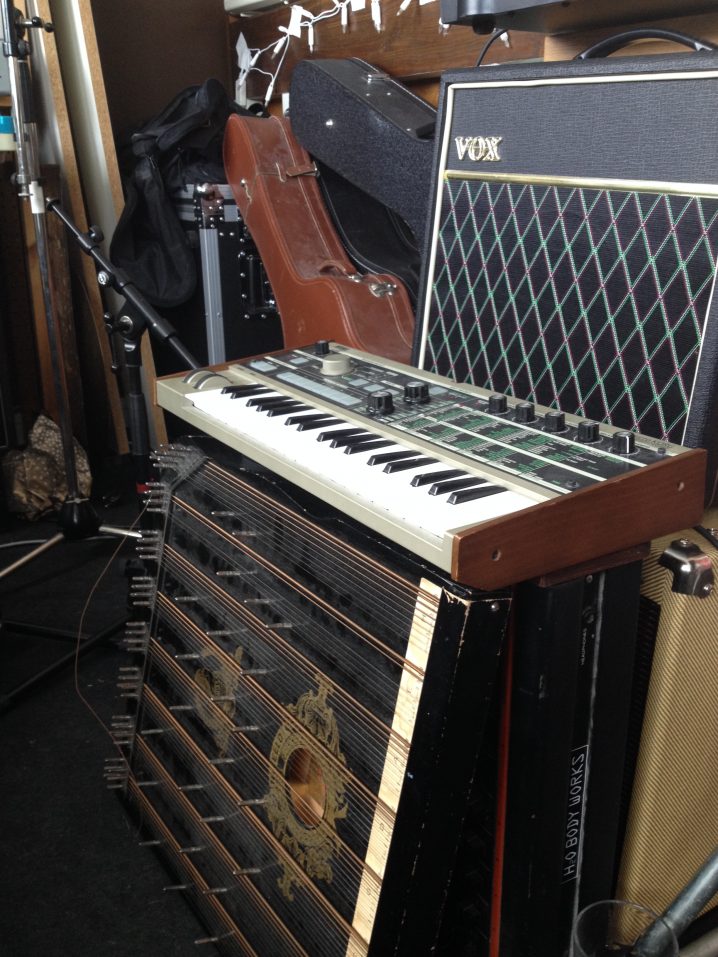
How many different studio iterations have you gone through, and what does your final setup look like right now?
Well basically everything from a 4-track portable tape recorder and a pair of taped-together headphones in the living room, to a Korg D16 and a couple of KRK V4 monitors in the bedroom to building a full on studio with loads of analogue vintage gear, back to the bedroom once the studio tanked and to the space where I’m at today, which is a very nice space that I share with three other guys from Gothenburg. Today I have a MacBook Pro and an AVID external sound card with Pro Tools 10. Over the years I’ve managed to get my hands on some very decent microphones which is a thing that a lot of people miss, or choose not to invest in I think. People buy one or two and then record everything with that, making everything sound the same and having to eq a lot. If you have the option of pairing sounds by recording them with different microphones, you save a lot of work when you go into mixing. Since I share my studio space I have access to a lot of nice instruments and effect pedals that I use as well. I rely heavily on analogue gear and acoustic instruments for creating what I do.
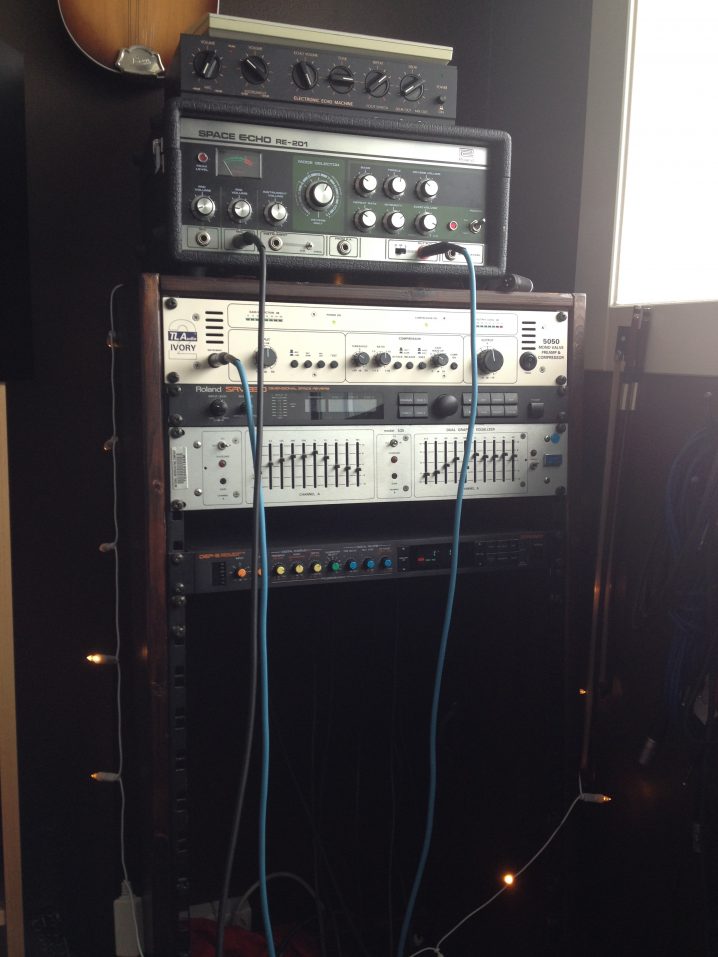
Tell us about your favorite piece of hardware.
I would have to go with my Roland Space Echo. I love it and I use it all the time. The thing is it’s so versatile. You can go from just very subtle reverb, to using it almost like a basic filter. You can create full on tape feedback, you can use it as a distortion unit or to bring warmth into almost anything you record. It’s beautiful to add to acoustic sound sources like piano or acoustic guitar, giving them almost an alien quality, or to Fender Rhodes for that matter. It’s basically all over my records. I bought it about ten years ago when a friend and I were building a studio here in Gothenburg and it’s by far the best investment I’ve ever made when it comes to music equipment.
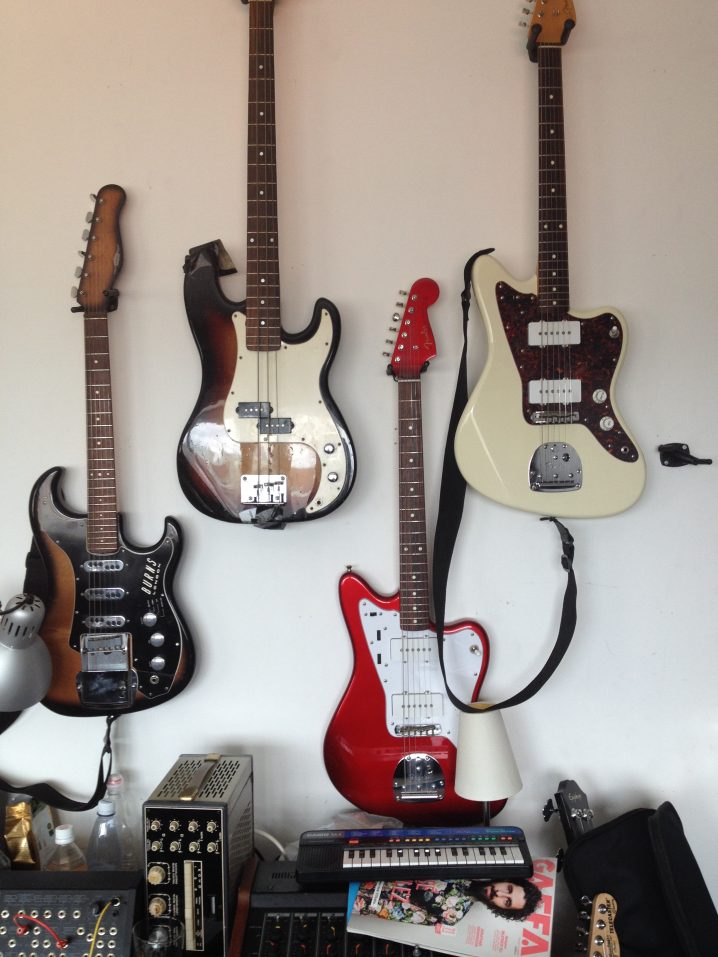
And what about the software that you use for production?
Well basically I’ve never really been into computers, so software for most parts is unknown territory for me. And I’m not saying you have to be into computers to work with software, but to me software is totally uninteresting. Using software is just for convenience. So I use Pro Tools, but to be honest I’ve never bothered learning it thoroughly, which would probably be a good idea. But I don’t really feel the need to do so since I don’t use any software synthesizers or anything like that and I never use MIDI. To me it’s basically a glorified tape recorder that enables me to edit more easily than I could with a regular tape recorder. And I’m not trying to come across as elitist or like some analogue fascist here, it’s just I never got into these things and I don’t really like working in a software environment. But I know the basics of Pro Tools and I know how to get what I want out of it, so I don’t see the point in digging deeper. I know I may come off as sounding a bit lazy here, and I’m sure the my palette would benefit from knowing more and I’m sure I could work more efficiently if I bothered learning more about the program, but the thing is I’d rather focus my energy on the actual creation of music, not the means to do so.
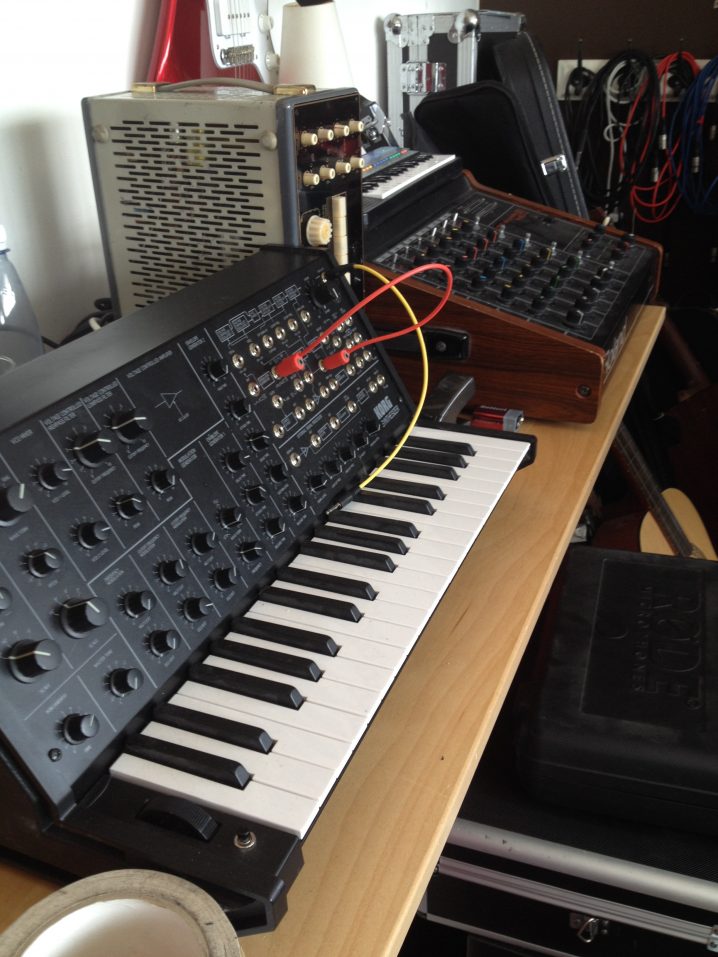
Is there a particular piece of gear that you’re just dying to get your hands on and do you think one day you’ll have it?
Well I’ve always been in environments where you make do with what you got and you work with that, so I don’t really have anything specific that I dream about. I would like to get an Arp Solina String Ensemble and a Yamaha CP-70 or something similar, and I would like to get some more and better pre-amps and microphones, but all of that are things that I could get if I just save up some money. Like I said, I go with what I have and use the limitations of that to be more creative. Or maybe I’m just saying that as an excuse to not bring more shit into the studio.
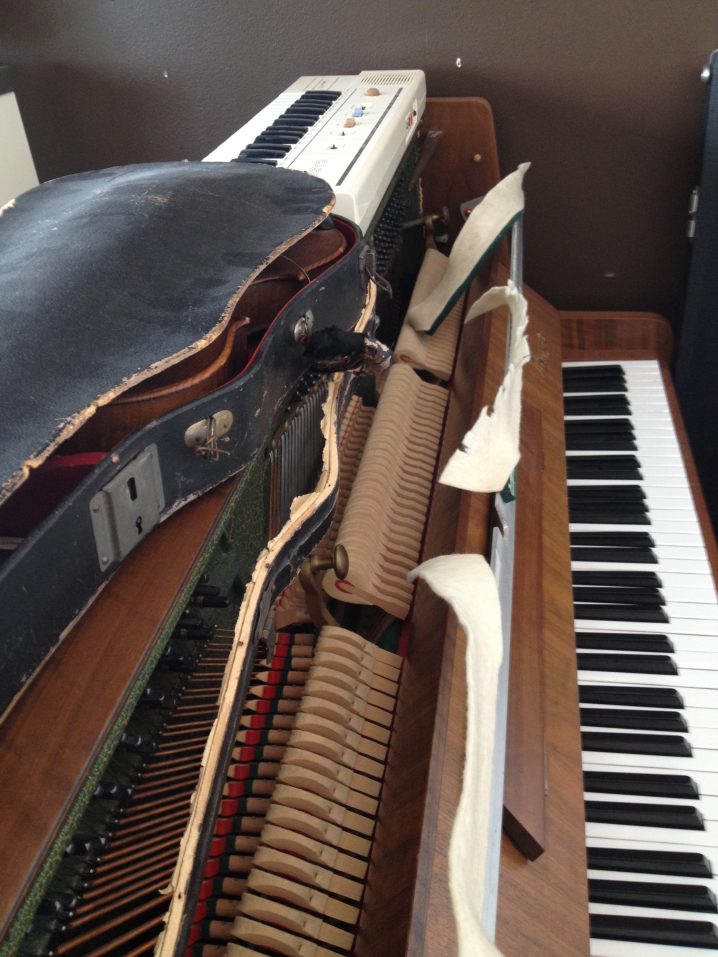
Can you please share some aspects of sound design in your work?
I work a lot with tiny, almost inaudible details. Small sounds that you will actually really never hear. But if I were to take them out, you’d sense something was missing. So it’s more of a psycho acoustics kind of thing, although of course it’s not very scientific. But I would say that these are sounds that are more felt than heard, if that makes any sense at all. Even in seemingly very sparse arrangements there are often these sounds in the background. It could for instance be a piano take that I copy and then process this copied track with whatever it “needs” to be processed with and then I sort of hide it in the mix. That way you can add frequencies that aren’t there to start with that can give the arrangement another nuance. It’s as if it’s sounding like it should, but then there’s just something slightly skewed, something you can’t put you finger on in the sound. Almost like an audio illusion. I of course use the same technique to just make mixes feel and sound more massive and full-bodied as well. The thing is you just have to know the frequencies you’re dealing with to find a balance, then it’s just the imagination that sets the limits.
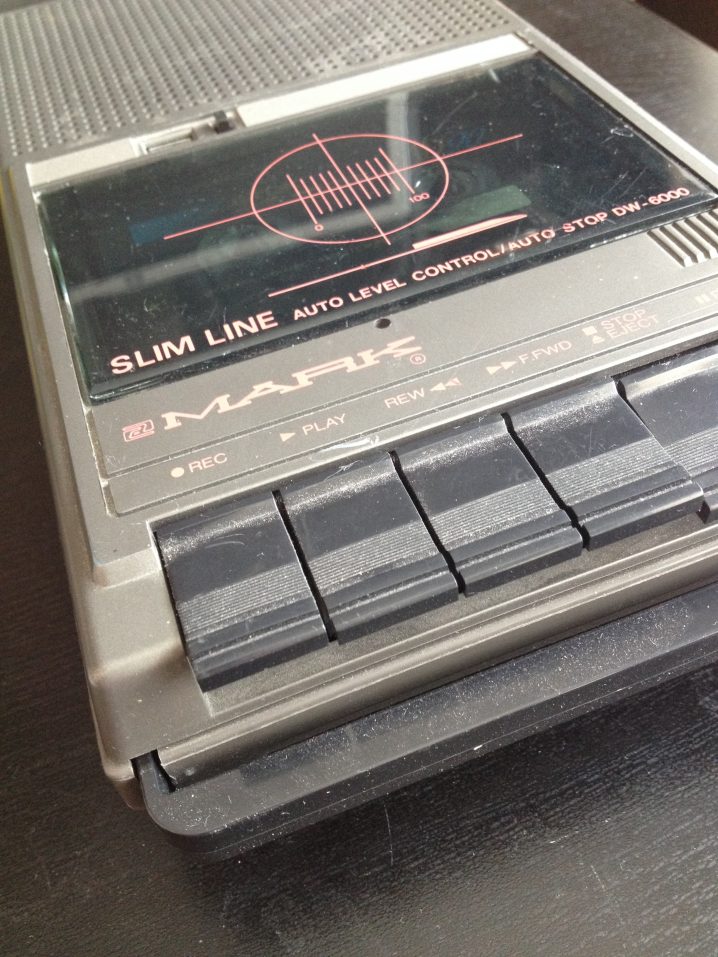
Any particular new techniques that you tried out for your last album?
Depending on what you count as my last album I would probably say yes. And no. The thing is I always try to find new approaches to creating music. Sometimes I just wanna dig into acoustic sounds all the way, like I basically did with Fall In to Fire and sometimes I just want to play around with synths and percussion as I’m doing at the moment. For Fall In to Fire I bought and used a lot of old cassette players, both stationary and walkmans. I would then record and arrange these massive song structures in my computer, then transfer them to a slightly de-magnetized and heavily over dubbed cassette tape and then run that through a walkman, while manipulating the speed by basically physically abusing the poor thing. And then record that onto my computer again and keep repeating this until I got the sound that I was looking for. It was a very time consuming process, but this way I could create loads of layers that were both out of tune and out of sync with each other, creating a very fragmented sound world.
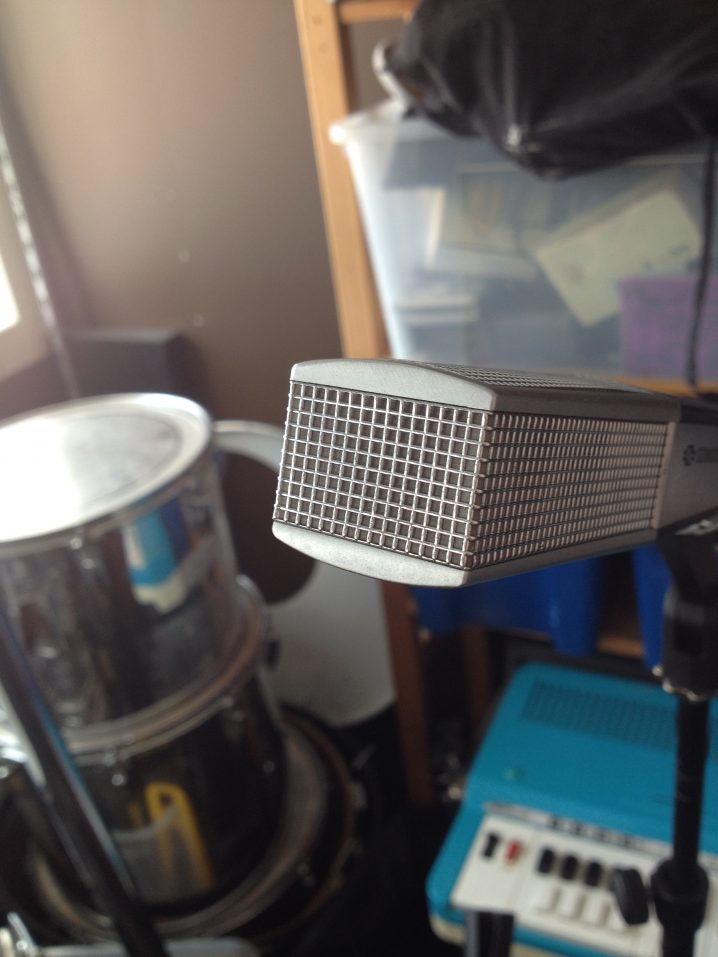
What does your live setup look like, and what do you bring with you when you travel for an extensive tour?
It’s actually very basic. I use an electric guitar, a Boss DD7 delay, a Boss reverb and my Korg D16 for its built in effects and the amazing sound of its digital distortion. I also have a Boss loop pedal and sometimes I have a Korg Monotribe just to add some sounds or filter. Sometimes I have some sampled sounds or field recordings on cassette player or my iPod and I also generally bring an E-bow as well. And that’s basically it. I’ve found that having a quite limited set-up is what works best for me. These are all items I know very well so I know how to use them and I know how to improvise with them, both in terms of actually playing, bur also if anything should fuck up during the set, which of course happens now and then. That said, I don’t really play that much live anymore. It’s complicated I guess, and I like it when I do it, but it’s also a major mental effort on me to do it, and I’m not sure if it’s always worth it to be honest. I guess I’m more of a studio person.
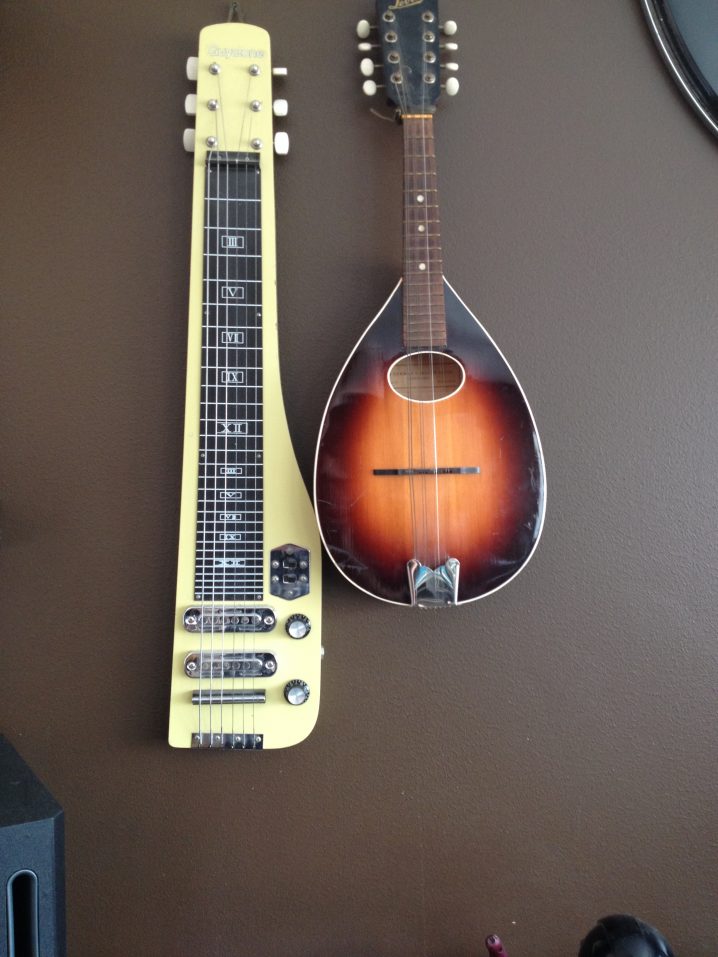
What is the most important environmental aspect of your current workspace and what would be a particular element that you would improve on?
I would say the access to a lot of different instruments. We have a pump organ, a fender Rhodes, a piano, accordion, banjo, violin, mandolin, lap-steel, acoustic and electric guitars, electric basses, amps, loads of effect pedals, various synths and organs, zither, drums and so on. There are plenty of stuff to play around with. But what I really would like to improve are the acoustics for listening, because honestly what we got now is very far from optimal. Finding the sweet spot is very hard and I have to constantly reference listen in headphones and at home to know where I’m going with a mix. What I would like to do is just get someone in to help me out with it, but that costs a lot of money so at some point I will have to deal with it myself and just fucking do it. But I keep procrastinating unfortunately…
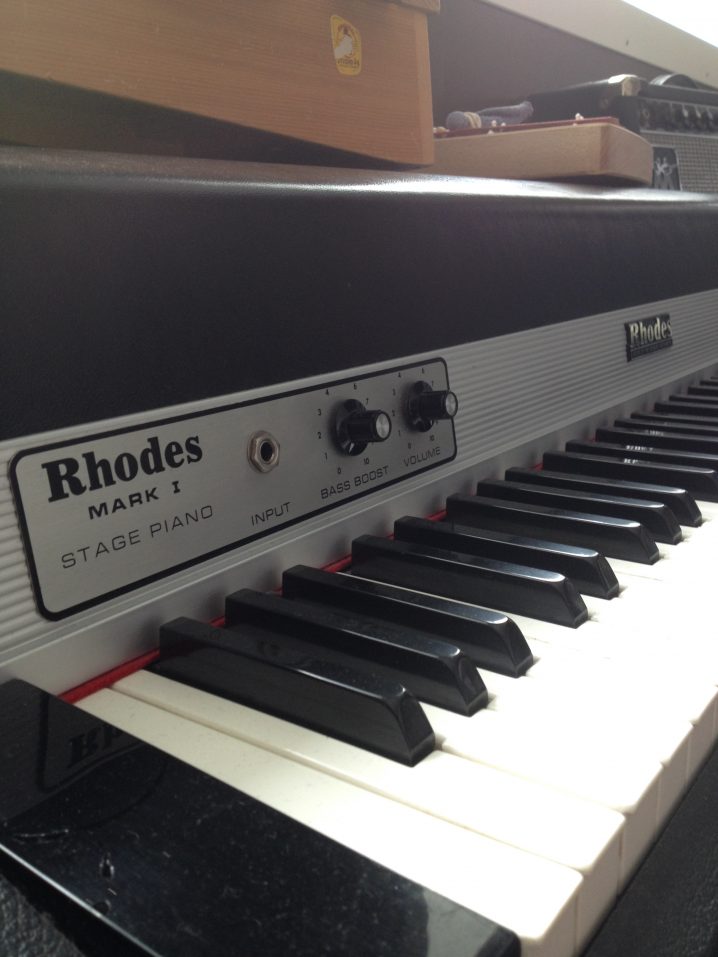
What can you tell us about your overall process of composition? How are the ideas born, where do they mature, and when do they finally see the light?
My music almost always starts with a snapshot in my mind, like a brief, flashing image of something. For The Black Sun Transmissions it started out with an image of people dressed in black standing on a shore, for Fall Into Fire it started with an image of someone lying on his back in a marsh landscape, surrounded by heather and pine trees, staring into the sky. Once I get these snapshots, they grow in me over time, evolving into sort of narratives. And once I have these narratives, I know what sounds to create and what different parts I have to make to tell the story. And that’s the hard part. I’ve discarded so many ideas because they weren’t aiding the story or going in line with what I wanted to tell. It’s also a very time consuming approach because I know what I want, I just don’t know where to get there. Fall Into Fire was created over the course of a year, which is really fast for me, but then I also spent so many hours in the studio, just to get away from everything. But really, most of my records take somewhere between 2-3 years to make. And once they finally do see the light of day, I really never listen to them again.
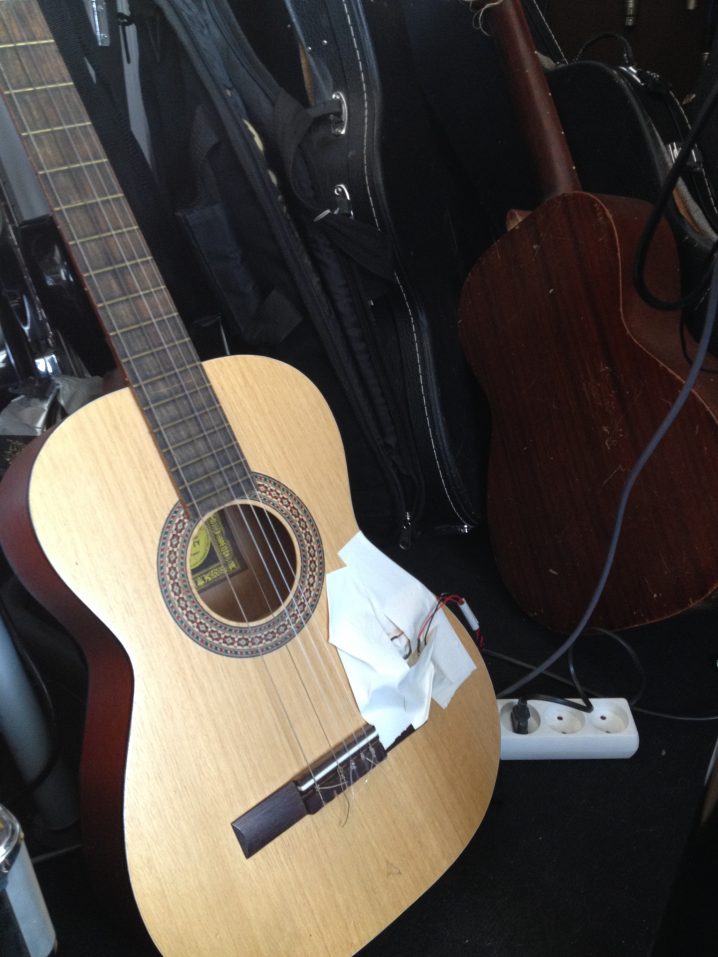
After the piece is complete, how do you audition the results? What are your reactions to hearing your music in a different context, setting, or a sound system?
Basically, I never play my music to people. I’ve done it on a few rare occasions with people I trust, but I really never let anyone into the process when I create my solo albums. Once I get the master, I listen to that in a few different systems, in my studio and on various headphones. But once the music has been sent to the printers, I basically never go back to it. And I hate hearing it on the rare occasions people play it when I’m around. It’s hard to explain, but to me the music I make is kind of a private thing, and I don’t want to have to talk about it or you know, represent it, if that makes any sense at all. I don’t mind doing interviews or talking to people who run blogs or whatever, but when I’m confronted with the music in real life I just wanna disappear.
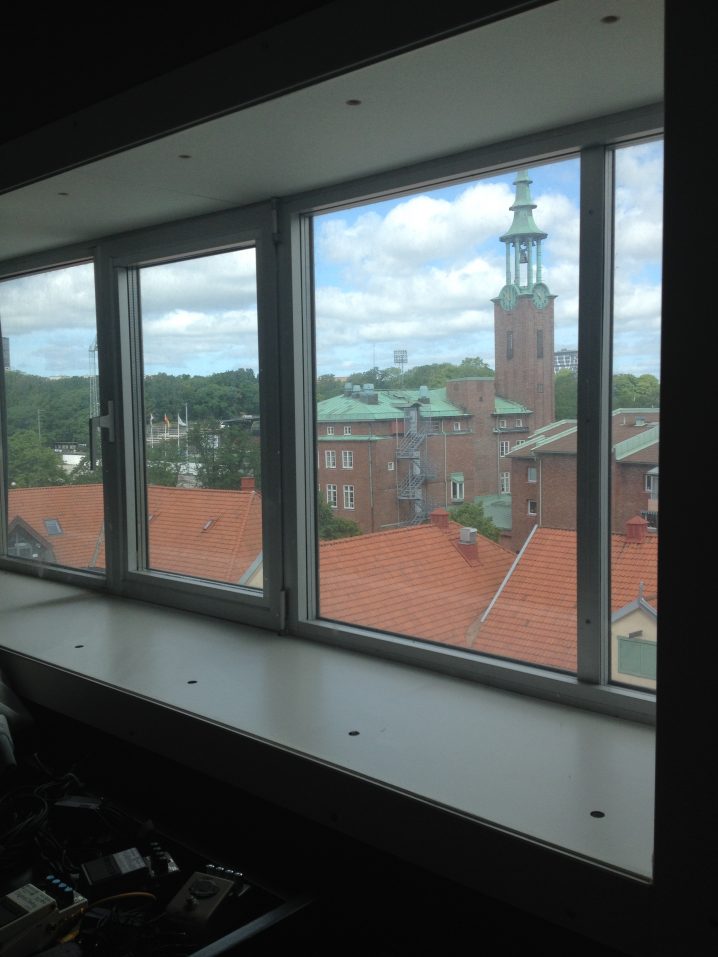
Do you ever procrastinate? If so, what do you usually find yourself doing during those times?
Oh yeah, all the time. The good thing about my studio though is that it’s so littered with different instruments and equipment that there is actually no room for a sofa there and there is no space for hanging around doing nothing. So basically you’re forced to work when you’re there, which I really like. It’s sort of like going to the office actually. So when I’m in the studio I work very focused, often pulling long hours if I have the time to do so. But what I do is putting off actually going there. The studio is only a 15-minute walk from my apartment, but during the weekdays I constantly try to convince myself I have more important things to do. Which is of course sometimes true, and sometimes not. But I also think it’s good to not be working too much with music either. You need to get other input in order to get new ideas, and things need to mature in their own way as well, and you can’t really stress that process, at least I can’t. And I don’t really want to either. I also have a tendency of over doing it, becoming slightly manic and obsessive about the whole thing. That’s one of the reasons I’ve almost entirely stopped taking my computer home to sit and edit things. I just can’t stop and then I go to bed too late and then I’m totally wrecked the whole next day. So yeah, I procrastinate. But I do it on purpose. More or less.
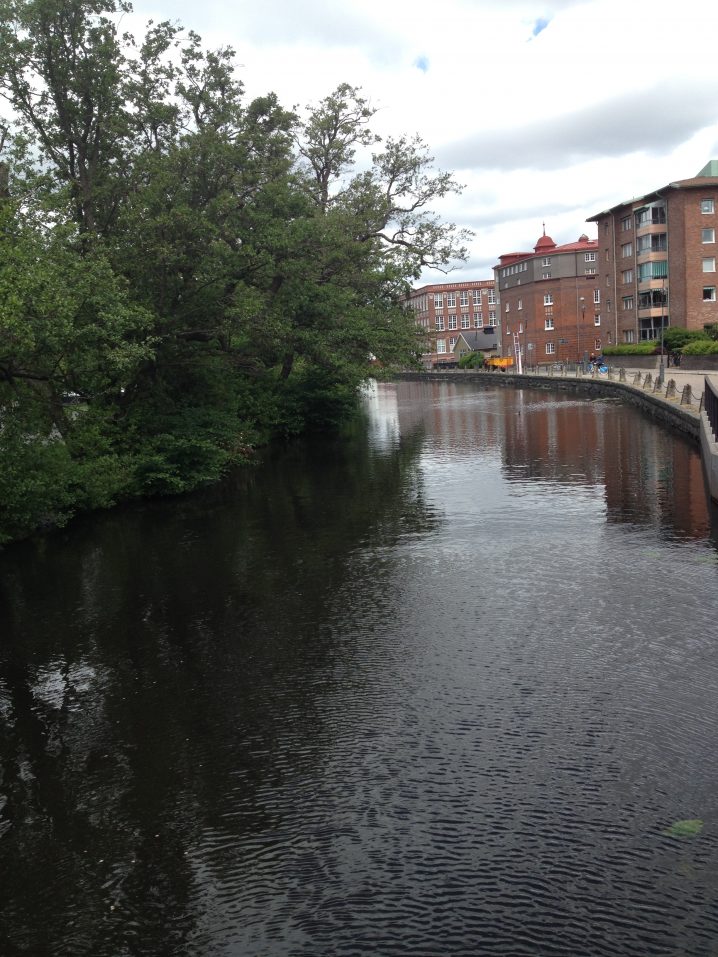
What gets you inspired?
Books. I read a lot and I find that reading books open up windows in my mind, into my imagination. When reading you have to populate your own universe, and therefore you are sort of the co-creator of the book. It’s populated by both imagination and your memories and a mixture between the two. It’s populated by your grandma’s house, but with the garden of your uncle’s. It’s people smoking your mother’s brand of cigarettes and wearing the glasses your dad used to have when you were a kid. It’s the house you used to live in when you grew up, paired with the apartment you used to have paired with that house you walk past every day on your way to work. It’s a fragmented world existing outside of time and place and it’s all your creation. The impossible becomes possible. Often when reading a book, a sentence can spark a snapshot that sometimes evolve into an album. There are few things I like more that diving head first into a book and then just stay there, for as long as I like.
